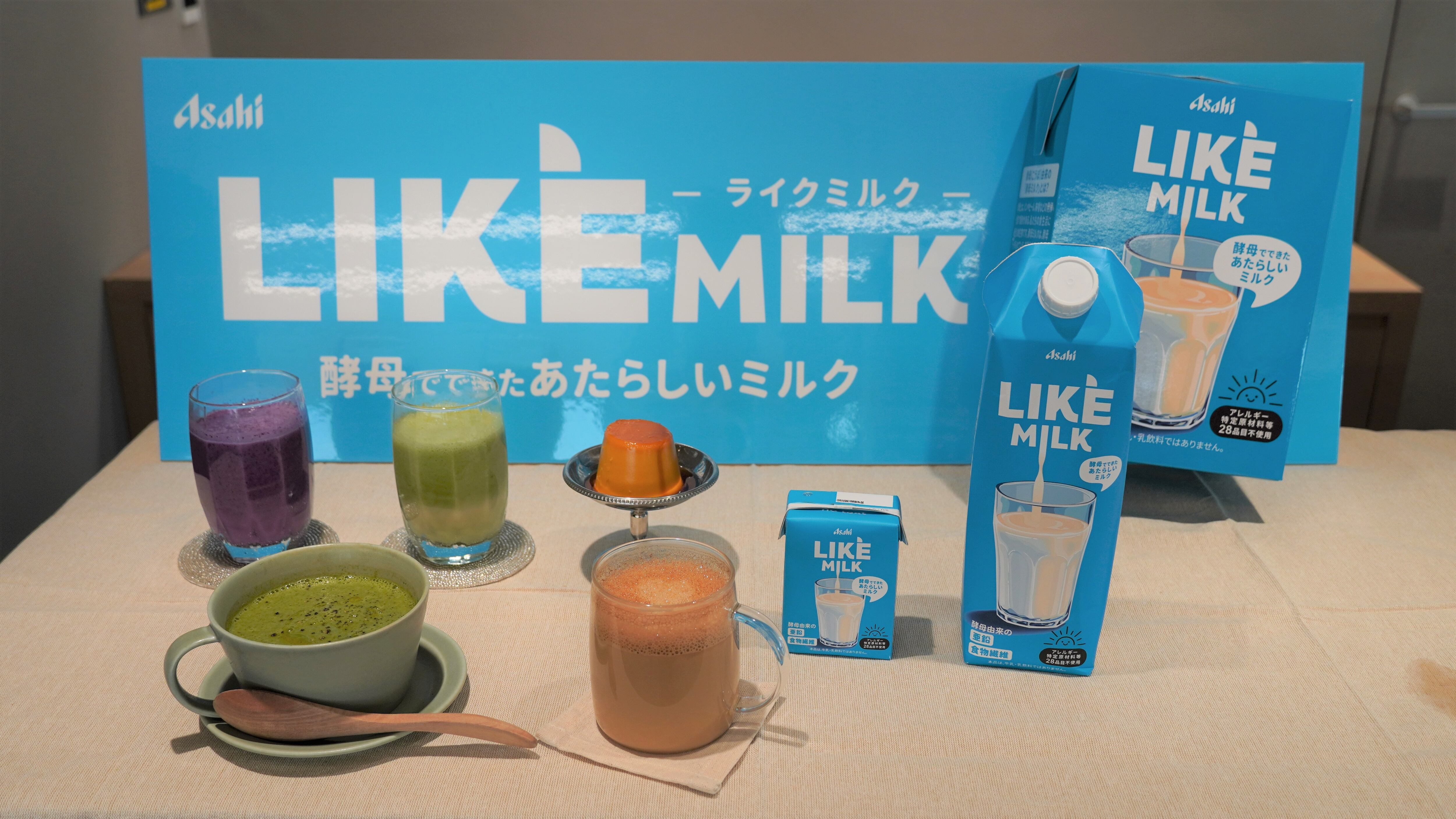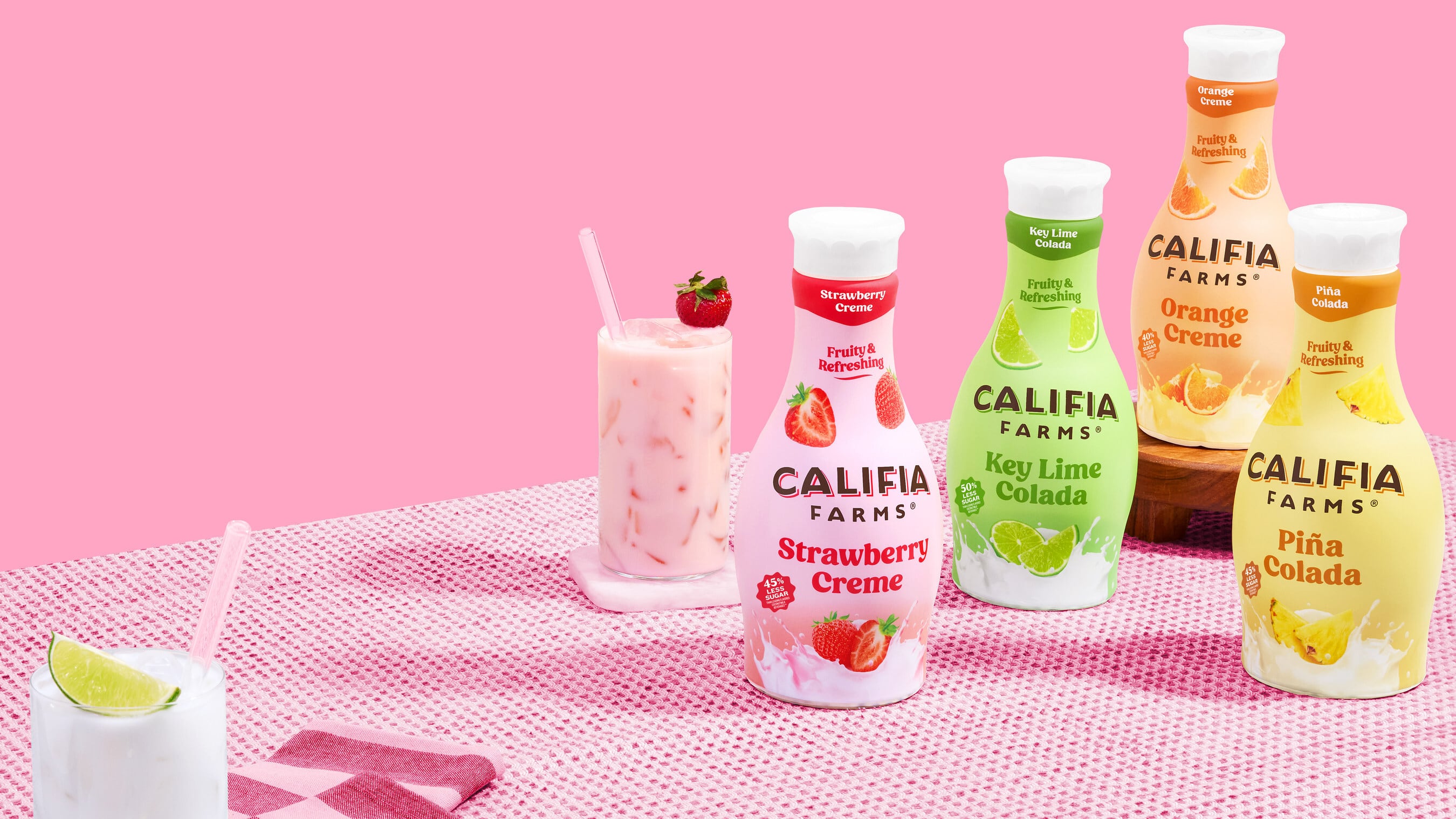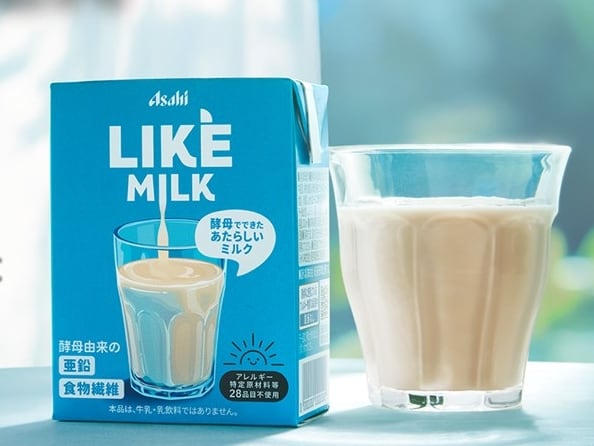Asahi Group Japan has leaned on its expertise in yeast R&D to concoct a first of its kind product in the company’s 135-year history: a milk alternative.
Formulated to provide similar functionality to dairy milk when used in food and beverage applications, Asahi’s Like Milk is based on yeast extract powder and also contains vegetable oil, sugar, powdered caramel sauce, salt, calcium carbonate, cellulose, antioxidants (Vitamin C, tea extract), emulsifier, flavoring, and calcium hydroxide.
The yeast base is made in a patent-pending process that enhances the emulsifying properties of yeast, we were told.
The approach may be novel in the realms of dairy alternatives production, but isn’t new to Asahi Group, which has for decades explored ways to squeeze more value out of yeast – a crucial ingredient in the company’s brewing business, home to brands such as Asahi Super Dry, Peroni, and Grolsch.
“The current product uses yeast cultivated in-house by our company,” a group spokesperson told us. “Looking ahead, we are also exploring the potential use of spent brewer’s yeast. This approach could contribute to the global upcycling of brewer’s yeast.”
Like Milk has been launched in Japan on a trial basis as Asahi gauges consumer interest and fine-tunes the product’s formulation.

“As a first step, we are conducting a test launch by offering a 200ml version of Like Milk through the crowdfunding platform Makuake, available from April 16 to June 15, 2025,” the spokesperson said. “Further test market developments are currently under consideration.”
So why is a company known for lager seeking to diversify into dairy alternatives? There are micro and macro considerations at play.
Unique proposition in a sea of soymilk
Domestically, Asahi estimates that Japan’s alternative milk market generates 108 billion yen annually (around $780m), making it a niche but potentially profitable investment avenue at a time when some consumers are shifting away from alcohol.
Like Milk is also a unique proposition in the alt dairy space as it’s not a typical plant-based milk alternative product (yeasts are microorganisms, not plants). This trait could help generate a buzz among consumers, but could also represent a risk for repeat purchases if the product doesn’t land well with shoppers – who would be used to soymilks and oat and almond-based dairy alternatives – the first time round.
Targeting the right consumer would therefore be especially important – but it’s a tall order. “The consumer base [that purchases milk alternatives in Japan] varies depending on the product – such as soymilk, almond milk, or oatmilk – and includes a wide range of formats, from unsweetened types to coffee-flavored varieties,“ a spokesperson for Asahi told us. “Because of this diversity, it’s difficult to define a single consumer profile.”
However, there’s one very specific USP that some plant-based competitors may lack: Like Milk is free from all 28 major allergens under Japan’s food safety and labeling regulations and is lactose-free.
“It’s clear that people with dairy allergies, lactose intolerance, those seeking non-animal products, and the health-conscious consumers, are among the key purchasers,” Asahi’s spokesperson told us.
Japan's 28 allergens
Asahi Group has made it a priority to make its first milk alternative free from the 28 major allergens regulated in Japan. These are:
The 8 major allergens specified by Japanese law: Shrimp, Crab, Walnuts, Wheat, Buckwheat, Eggs, Dairy products, Peanuts.
And the 20 major allergens for which labeling is recommended: Almonds, Abalone, Squid, Salmon caviar, Oranges, Cashew, Kiwis, Beef, Sesame, Salmon, Mackerel, Soy, Chicken, Bananas, Pork, Matsutake mushrooms, Peaches, Mountain yam, Apples, Gelatin.
Milk alternatives and alcohol moderators
On a macro level, milk alternative brands are increasingly trying to attract non-drinkers and alcohol moderators – typically younger, Gen Z consumers. According to Mintel’s The future of dairy and non-dairy drinks 2025 report, dairy alternative products can appeal to alcohol moderators through limited-edition, seasonal flavors.
Cocktail-inspired offerings, such as Califia Farms’ Refreshers range debuted at Expo West in the US this spring, are an example of how plant-based dairy brands are seeking to attract non-drinkers. (Though Califia is also reaching into juices with this release: the company estimates that the US juice market is expected to reach $3.35bn this year, with 57% of consumers purchasing juices in the past year and nearly two-thirds drinking juice weekly.)

While Asahi’s Like Milk does not form part of the company’s non-alcoholic product roadmap, diversification into low and alcohol-free beverages has been a key strategic pillar for the group over the last few years.
Chief executive Atsushi Katsuki warned that alcoholic beverages sales in Japan would continue to decline “because we cannot go against the shrinking population, which means we cannot expect the Japanese market to grow massively,” he told the BBC. The group also hopes to increase the share of low or no alcohol beverage sales from 10% in 2023 to 20% by 2030.
The latest sign that the firm is embracing alcohol moderation trends in APAC is its new promotional campaign. This summer, the group is opening pop-up bars across Osaka, Nagoya and Seoul among other locations in Japan and South Korea to offer 0% to 3% alcohol cocktails as it seeks to appeal to consumers who embrace mindful indulgence.

